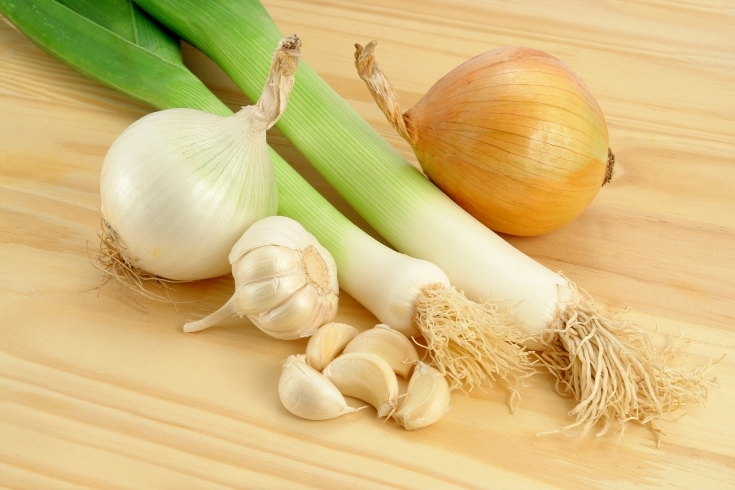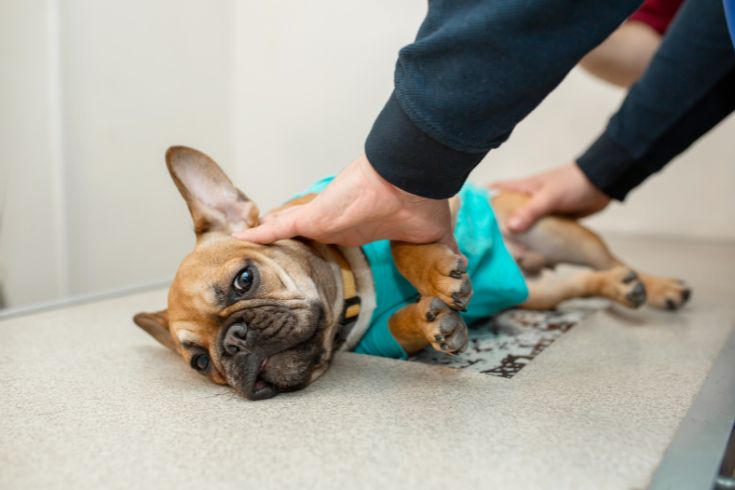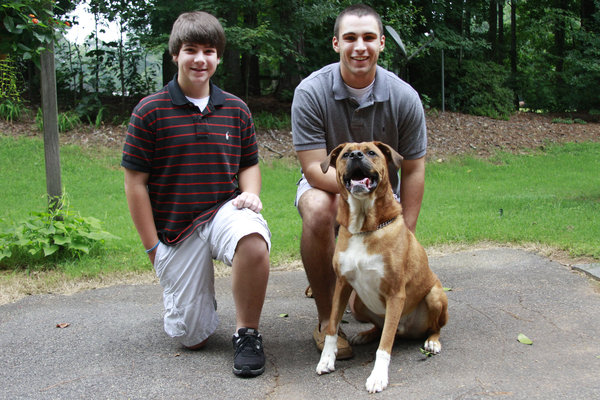Are you a pet owner wondering if Fido can scarf down that juicy raw onion? Or have you seen your pup snacking on some pungent produce and now need to know if it’s safe or not? They’re not! Dogs cannot eat onions.
So yes, onions are definitely toxic to dogs as they contain harmful compounds that can cause severe medical problems. So it’s essential to ensure that anything you feed your pup is free of them or their cousins, like leeks and chives (the Allium family), or they’ll get onion poisoning.
So read more as I explain to you why it’s toxic to dogs, the signs of onion poisoning in dogs, treatments, and more.
So, Why Are Onions Toxic to Dogs?

This is no surprise since onions contain compounds known as disulfides and sulfoxides, which are poisonous to some animals and cause them to suffer from hemolytic anemia, eventually leading to red blood cell damage and death if left for too long without treatment.
Extra care is needed if there’s ongoing care for any sort of onion consumption, and your vet will be an essential part of the care team in their favor.
Signs and Symptoms of Onion Toxicity in Dogs
Onion toxicity in dogs is a serious issue to be aware of and can have serious health implications if not addressed early on.
Signs that a dog is suffering from severe onion poisoning may be in critical condition and include any of these health conditions:
- Vomiting
- Loss of appetite
- Diarrhea
- Weakness
- Depression
- Urinary problems
- Abnormally rapid breathing rate
- Elevated heart rate
- Development of anemia in dogs
- Red-colored urine or discoloration of urine
As a pet owner, you should be vigilant for these signs, and as soon as any are noticed, you should take your pet to veterinary care for immediate treatment. Prevention is the best defense against onion toxicity since all forms of onions can be harmful to dogs, including fresh onions, cooked onions, & dehydrated versions such as those found in pasta sauces.
Treating Onion Toxicity in Dogs

Thankfully, with proper care and attention, bad health effects of onion toxicity can be avoided and treated fairly easily. It is important to note we should keep away even small doses of onion products from our canine friends, as even the smallest amounts can prove toxic and cause problems such as digestive issues and anemia.
If you suspect your dog has consumed onions, it’s critical to seek veterinary attention right away. Depending on the amount eaten, your beloved pup may require blood transfusions and monitored IV fluids, among other treatments, so the sooner you act, the better!
Don’t overlook onion toxicity or take chances waiting for symptoms to appear before reaching out for help; proactively consult your vet for expert advice on keeping your pup safe from harm.
Healthy Vegetables for Dogs
As a dog owner, knowing what foods or human foods are safe for our pets is difficult. Also, many store-bought doggy treats can be filled with unhealthy ingredients that are not beneficial for your pups, such as garlic powder or trace amounts of onion powder.
I always check food to ensure it doesn’t have anything that may harm my pups. This is a good practice to have for any food, including your own.
There are many safe & natural vegetables that can make wonderfully healthy snacks for dogs! Broccoli is a great source of fiber & immune-boosting antioxidants; carrots provide vitamins, including vitamin A & beta-carotene; sweet potatoes offer essential nutrients for the skin & coat; and pumpkin helps keep your pooch’s digestive system running smoothly.
The following veggies are okay for your pup:
- Broccoli
- Carrots
- Sweet potatoes
- Pumpkin
- Celery
- Green beans
- Cauliflower
- Lettuce
- Zucchini
- Brussel sprouts
- Cabbage
- Spinach
- Mushrooms
The following are not suitable for dogs to eat (basically the entire onion family or the allium species):
- Onions
- Leeks
- Chives
- Wild mushrooms
- Raw garlic
Just remember that good veggies need to be cooked or frozen before feeding them to your pooch. Veggies have cell walls that need to be broken down in order for your pooch to digest them properly.
Organizations That Can Help

It’s vital for pet owners to know the dangers common household products pose to their furry friends. Unfortunately, pets are exposed to all kinds of toxins that can significantly harm them when ingested. So having a trusted poison control center in your contacts is essential, such as the ASPCA’s Animal Poison Control Center or the Pet Poison Helpline.
These resources provide critical & up-to-date information on how to respond quickly and appropriately if your pup or kitty accidentally gets into something they’re not supposed to, saving both you and your pets some unnecessary stress! So do yourself a favor and save those numbers in your contacts now. You never know when you might need them!
I found these two numbers to be the most beneficial. I have used both of them myself when one of my dogs ate a pill that I had dropped by accident and didn’t get to fast enough. These two numbers will get you the information you need and tell you what steps need to be taken.
ASPCA Animal Poison Control Center or 888-426-4435
Pet Poison Hotline or 800-213-6680
FAQs
What Parts of Onions Are Toxic to Dogs?
The most dangerous part of the onion is the bulb, but all of the onion plant family in any form, be it flesh, skin, leaves, etc., are dangerous for your dog and can cause serious, if not life-threatening, situations.
How Much Onion Can Make a Dog Sick?
Dogs are quite sensitive to onions and can become severely ill even if they eat a small amount or are within toxic levels. An average-sized dog would only need about 10 grams of onion per kilogram of body weight for symptoms of illness to occur, making it easy for most dogs to get into trouble with just one piece of onion.
What Should I Do If My Dog Eats Onions?
The best you can do is call your vet for advice. Depending on the quantity eaten and the period of time that has passed, they might recommend immediate treatment or a watchful waiting approach in which you’ll want to pay close attention. In either case, keep an eye out for signs of discomfort or distress and act if things look serious.
Conclusion
While there is some debate about the long-term impact of small amounts of onion consumption, we should keep away large quantities of them from our pup! If you think your pet may have eaten some onions or onion-containing items (like most commercial sauces), watch out for toxicity signs and consult your vet if a severe illness arises.
While we can’t give our pups onions like us, Fido still has plenty of nutritious veggie options, including nutritional superstars like pumpkin, carrots, cabbage, and celery. So, remember to go easy (and not at all!) on the onions with your pup and provide them with healthy alternatives to get a balanced diet—their health and life depend on it!
